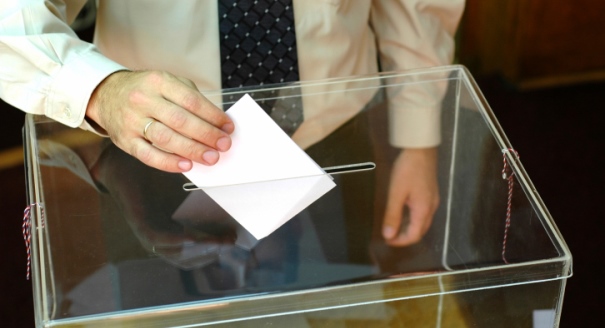In the run-up to Azerbaijan’s presidential election last October, Meydan TV desperately wanted to break President Ilham Aliyev’s control of the media. But the country’s only independent television channel—a station that operates in exile, broadcasting its weekly program from a basement in Berlin—was in dire need of money.
Emin Milli, the channel’s director and a dissident blogger, decided to apply to the European Endowment for Democracy (EED) for assistance. He was stunned to receive a promise of support from the foundation, which offers grants to prodemocracy activists in Europe’s neighborhood, within days.
“There was an urgent need to enlarge the space for the free flow of information for the Azeri people. So we took Meydan TV’s application and turned it around within eight days,” explained Jerzy Pomianowski, the EED’s executive director, in an interview with Carnegie Europe.
With the EED grant, Milli was able to report on cases of rigged election results in Azerbaijan. Above all, Azeris could listen to an alternative voice, however limited the television station’s following may have been.
It is exactly this kind of civil society initiative that the EED wants to nurture, in order to open up politics in Europe’s Eastern and Southern neighborhoods.
The EED was established last June. The need for such a foundation became patently clear during the Arab Spring uprisings. The European Commission’s huge budget for the Southern Mediterranean countries had, by and large, neglected civil society movements and prodemocracy individuals. A recent report by the European Court of Auditors found that the €1 billion ($1.4 billion) of aid the commission allocated to Egypt between 2007 and 2013 had little impact on promoting democracy and human rights.
Yet when Poland first raised the idea of an EU foundation for democracy support, neither the European Commission nor many other EU governments saw the need for it. Germany, for example, was opposed at first, believing its own political foundations were sufficient, and it did not relish the competition. Britain, France, Italy, and Spain have yet to support the EED financially. As for the commission, it feared there would be competition and comparisons as long as it was unable to control the new body.
Despite this initial skepticism, the EED got off the ground. Now, the big questions are whether it can make a difference and whether it is sustainable.
The foundation can make a difference over how it disburses funds. It is unbureaucratic. The European Commission pays the EED’s personnel and running costs, but it has no say over the EED’s projects. Otherwise, every approval would take many months.
“If we used commission money for the grantees, we would fall into a trap,” said Pomianowski, a former Polish diplomat. “We would have to follow all the bureaucratic rules. We would have no flexibility.” The EED’s projects are financed exclusively by the member states, which have pledged €18 million ($25 million) so far.
The EED can make a difference in another way too. It was set up specifically to fill the gap left by nongovernmental organizations and governments—in the words of its motto, “supporting the unsupported.” The EED gives money to prodemocracy individuals or groups who are too unknown or too small, or who cannot be pigeonholed by nongovernmental organizations.
Pomianowski avoids projects that exist mainly to satisfy donor profiles. “You have a lot of funding-driven activities. That is why we are not writing strategies. We are not choosing topics,” he explained. The grantees set the agenda. But he has to watch his back. The EED, which is based in Brussels, has no country offices. The advantage of that is that no government can kick it out. The disadvantage is the difficulty the EED has in monitoring and carrying out due diligence of its projects.
The EED explicitly supports political activism. In practical terms, that means recognizing that individuals and civil society movements need quick help with no political strings attached.
“During our transitions across Eastern Europe, there was nothing like the EED to address quick demands, quick requests,” Pomianowski said. Indeed, he added, it took the EU until the mid-2000s to establish the European Instrument for Democracy and Human Rights. Run by the European Commission, it has a budget of €1.1 billion ($1.5 billion) for supporting democracy and human rights in non-EU countries for the period 2007–2013.
Now that the European Endowment for Democracy is established, it is under immense pressure from its paymasters to produce results. But so far, it has a very small staff and limited capacity.
What is more, the EED does not receive EU institutional funding for its projects. It is modeled on and inspired by the U.S. National Endowment for Democracy, a grant-making organization that helped anti-Communist movements across Eastern and Central Europe. But while that organization is supported by a grant from the U.S. Congress, the European Parliament, despite its support for human rights, does not financially support the EED. The various political groupings in the parliament cling to their own political foundations rather than put their weight behind the EED.
The European Endowment for Democracy’s mission is clear, but its support is fragile. As long as countries in Europe’s neighborhood struggle with democracy, the EED is obviously needed. But is that message getting through?


-2.png)

.png)

.png)